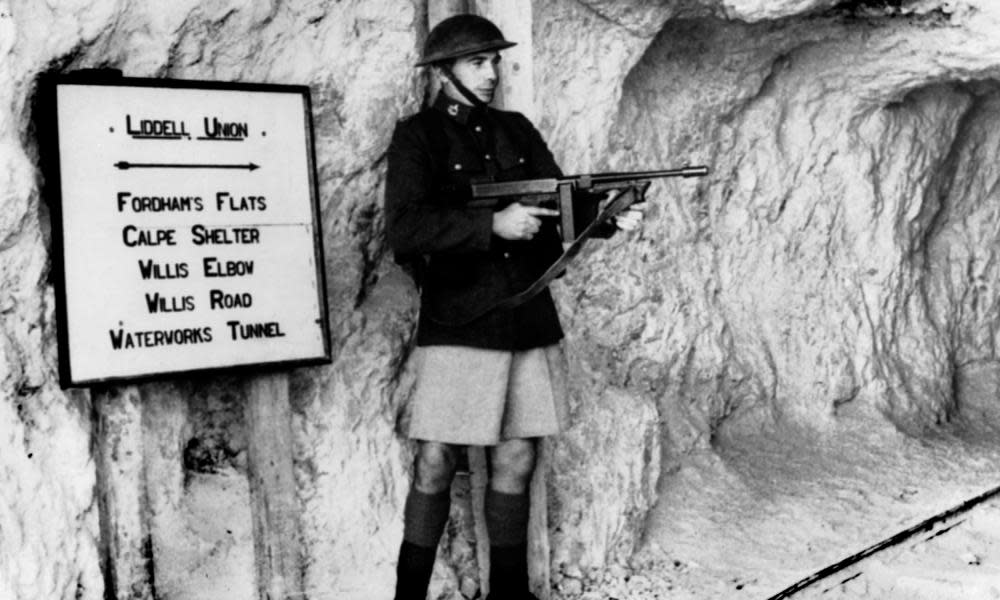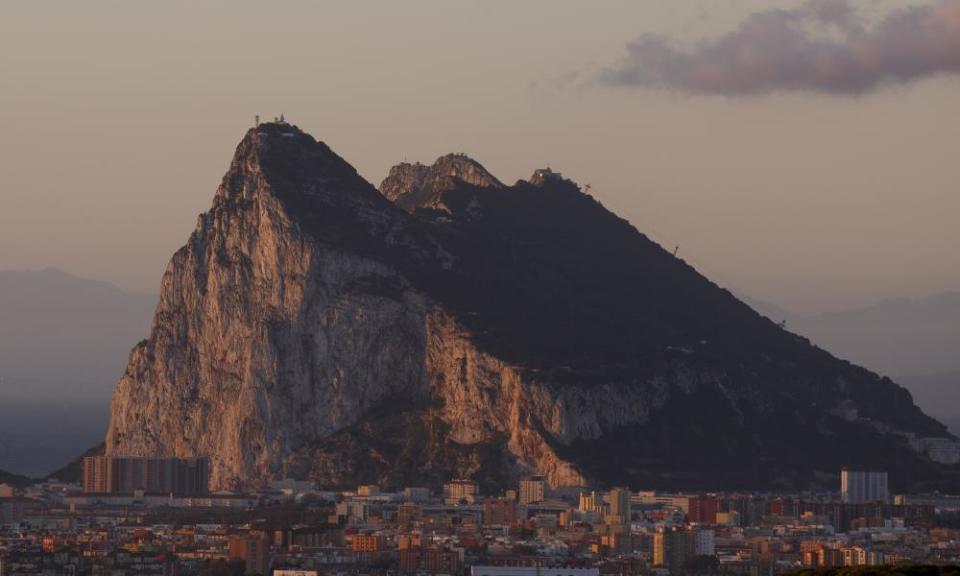Defending the Rock by Nicholas Rankin – Hitler, Gibraltar and Operation Felix

This is a big book on what appears on the surface to be a very small subject. The Rock of Gibraltar, seized by the British in 1704, was a tiny outcrop of empire in every sense. Vulnerable though its small garrison was, for more than two centuries the Rock became a staging post on the developing “all-red route” (in fact pink in most atlases) from Britain to its distant Asian empire – the route was Gibraltar, Malta, Cyprus, Suez, Aden. Control over the Gibraltar Strait gave the British navy a privileged position in the Mediterranean; Mussolini later complained that it constituted one of the prison bars preventing Italy from developing a new Roman empire in northern Africa and the Mediterranean basin. In the second world war the strategic significance of Gibraltar led not only Mussolini, but Hitler too, to think about expelling the British by violence from the Rock.
It is this wartime experience that forms the core of Nicholas Rankin’s account. He has researched a remarkable amount of detail about every aspect of the port’s role, and the history is presented in a highly readable style. He is fortunate that during the war the Rock hosted an array of remarkable characters, whose foibles, fantasies and fears are handled with a keen eye. Anthony Quayle, the film actor, was posted to Gibraltar where he played in real life roles that he would later play in fiction; governor Noel Mason-MacFarlane is a historian’s dream, a heroic leader with energy, wit and bonhomie that he shared with all around him; and passing through Gibraltar were many of the war’s great names, from Churchill to Eisenhower (who was briefly overawed by the thought that as supreme allied commander he would be responsible for the Rock, “symbol of the British empire”).
Among the more engaging of Gibraltar’s visitors was the American broadcaster Helen Hiett, who arrived on the Rock from defeated France in time to be bombed. She was instinctively attracted to the sturdy, suntanned soldiers she met, “real people”, she wrote, in contrast to the anaemic, self-centred university men she had met in Britain, “insufferable professorial types”, as Rankin calls them.
She also admired the British ability to keep calm, whether it was three young women she watched doing their hair and makeup during an air raid without batting an eyelid, or the calm way a heart-attack victim was cared for by his fellow officers.

The reserve of the privileged British had its drawbacks, however. When a group returned exhausted from hospital at 3am, and Hiett suggested getting some food, Mason-MacFarlane responded: “I hardly think that I should wake the servants.” Hiett led them to the kitchen, where the officers had never been, and rustled up a night-time feast, though Mason-MacFarlane still worried that the servants would resent the violation of the barrier that separated the classes.
The hub of Rankin’s story is Operation Felix, the German plan drawn up late in 1940 to capture Gibraltar in a swift coup de main. Eager to defeat Britain or force her to the conference table, Hitler finally responded to the urgings of his senior commanders that shutting Britain off from the Mediterranean and her route to the empire would bring major strategic gains. The operation was planned in the finest detail, based on extensive intelligence gathering; the German armed forces displayed all their proverbial talent for operational and tactical preparation. Whether Hitler was really serious is still not entirely clear, since the war against the Soviet Union in 1941 was already in the advanced planning stage. Serious or not, the main obstruction was Franco, who had no desire to see one alien invader of Gibraltar replaced by another, far more dangerous one. Franco insisted that only Spaniards could capture the rock and restore Spanish unity.
Rankin is excellent on the convoluted negotiations that went on between the two sides. Franco was happy to flatter Hitler, but he sensibly saw the risks of an assault on Gibraltar, which would cut off vital supplies of American and Canadian wheat and new-world oil, and tempt the British navy to treat Spain as a belligerent.
In the famous meeting at Hendaye in October 1940 on the Franco-Spanish border, Hitler became mad with frustration at Franco’s resistance. In turn, Franco found the German negotiators “intolerable”. For the Germans, the risks of invading neutral Spain to get at the Rock, apart from all the logistical nightmares involved, was too high. Operation Felix, like Operation Sealion before it, died a death.

After that, Gibraltar had little to worry about. Franco had no intention of invading the now heavily defended fortress for no obvious gain, while Mussolini’s navy and air force were simply out of their class in the Mediterranean war. Rankin adds Gibraltar into the later war story when by geographical accident it happened to feature, but it was a very small part of a larger story. Too much of the book features accounts of the broader war narrative, which could well have been cut down to provide a more focused history.
Gibraltar did not, as the title claims, defeat Hitler, since its defence was never tested. But if it had been lost in 1940, would the story of the war have been very different, as Rankin suggests? The British had much more to worry about: keeping the Atlantic sea lanes open was the vital thing, and trying to lure the United States into the conflict, while withstanding the blitz. The Mediterranean was anyway dominated by the Axis in the early years, necessitating the long Cape route to the Middle East and India. Losing the Suez canal and the oil of the Middle East would have been a disaster, but Hitler hedged on that too. Rankin has chosen an unusual vantage point to view the wider war, and told his story well, but Gibraltar as a strategic key does not altogether convince.
• Defending the Rock: How Gibraltar Defeated Hitler is published by Faber. To order a copy for £17 (RRP £20) go to bookshop.theguardian.com or call 0330 333 6846. Free UK p&p over £10, online orders only. Phone orders min p&p of £1.99.


